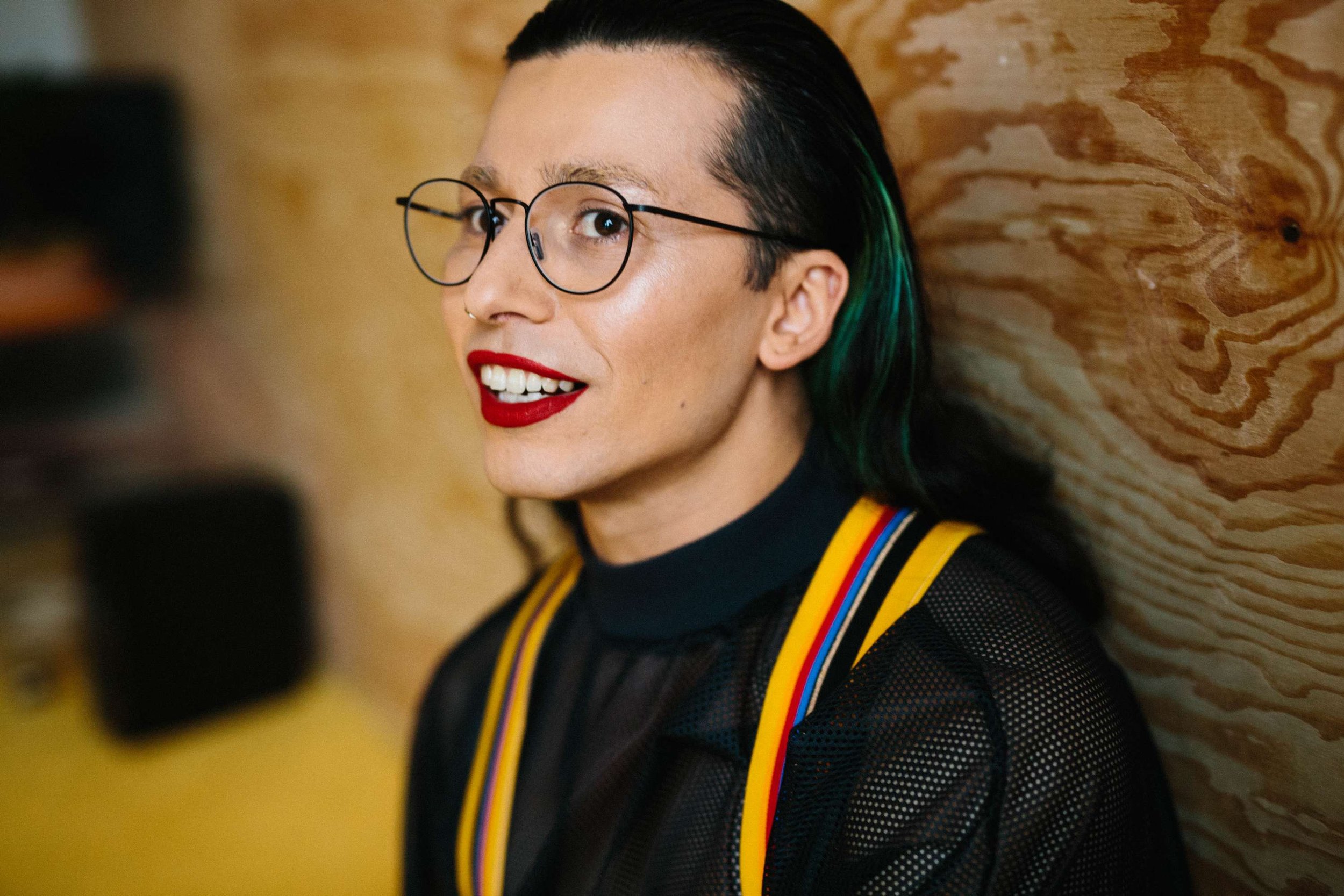Brand: Ace & Tate
Role: Managing Editor
Heimatbound
An editorial series for Dutch eyewear brand Ace & Tate featuring four talents who have followed the call of Berlin as a haven to pursue creative endeavours. It showcases their lives in the city, at home, and at work – wearing their favourite Ace & Tate glasses – and culminated in an in-store event with a round-table interview prompting notions of home and how identity is always multidimensional. Sourcing the talents, I created a storyline with each of them, concepted the event and briefed participants, and commissioned and edited a freelance writer. The stories were published across the Ace & Tate web and social media channels, displayed in their Berlin Mitte store, and featured on Friends of Friends.
Musician MIKEY on the spirited voyage to define their personal voice
Berlin might not have been Mikey Woodbridge’s first choice when it came to finding a home, but the two years spent living in the German capital have been transformative for the Australian-born musician. In 2018, Woodbridge, aka Mikey, released an inaugural EP, Paths, which explores the pain and inner strength that comes from seeking sex and romantic relationships as a non-gender-conforming person. Mikey identifies as non-binary and goes by the pronouns they or it. “It’s never going to be a normal love,” they reflect. “It’s not hetero love, it’s not gay love, it’s something else because I’m in the middle.” The debut is a startlingly honest account of what it means to be non-binary, but one that—with its universal theme of love—has the potential to find resonance beyond the LGBTQI community. Read on Friends of Friends
“When I came to Berlin I didn’t need to prove myself to anyone anymore.”
“Berlin taught me what good friends are; everyone takes care of each other here. There is more time to have a life and really make connections.”
How a change in location helped Karin Fornander find her stride
Karin Fornander originally moved to Berlin about ten years ago with dreams of becoming a diplomat.
Her intention was to complete an internship at the Swedish Embassy and then head back to Sweden to apply for diplomat training. But Fornander’s carefully laid plans quickly came undone once she arrived. “The thought of going home became very daunting once I had gotten a taste of carefree life in Berlin,” she recalls. “You know how it is, you come here and think, hmm, I’m going to stay!” Read on Friends of Friends
“The pace in Berlin is quite chilled, which we shouldn’t take for granted. A slower pace and cheaper lifestyle makes more room for thought, creativity, and mistakes. I wish we’d have more time to focus on the way we do things rather than always producing and generating more output, and Berlin allows for that.”
Invoking a bolder, feminine power in her art, illustrator Ruohan Wang finds her strength in a new city
It was a family trip to Europe that led Ruohan Wang to make the decision to uproot her life in Beijing and move over 7,000km away to study illustration in Berlin.
“The idea was partly from my father because he thought it would be better if I could learn more about other cultures, languages, and histories,” Wang recalls. “That way you have the view of the whole world and not just the view of China.” After visiting a number of capital cities, including Rome, Paris, and Stockholm, Berlin turned out to be the most familiar to the Chinese-born artist—she not only saw German as the European language with the most similarities to Mandarin, but also identified strongly with German culture through film and music. “Kraftwerk is one of my father’s favorite bands,” she explains. “It’s an old band but they were very popular in China at that time; and design history in Germany is also quite well known in China due to Bauhaus. I thought ok, I know this.” Read on Friends of Friends
Nico Adomako on expanding his creative roots in Berlin’s fertile landscape
Nico Adomako has German and Ghanaian roots, the latter having led him to West Africa multiple times.
When asked, the DJ and co-founder of music collective Einhundert states that Berlin and Ghana aren’t “comparable at all, besides the growing rate of gentrification and the influence of the outside world.” Adomako is set to visit the country again in the near future, this time he hopes to play there. “It’s finally infiltrating the western world, especially in cities known for their musical impact, such as London,” he notes about Ghana’s growing music scene. Read on Friends of Friends
“Berlin as a melting pot exposed me to all kinds of different cultures, knowledge, and music genres. It also pushed me out of my comfort zone and helped to keep me open for all kinds of new stuff that’s coming my way.”












